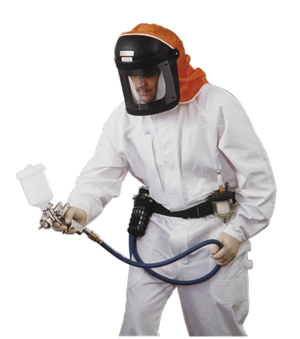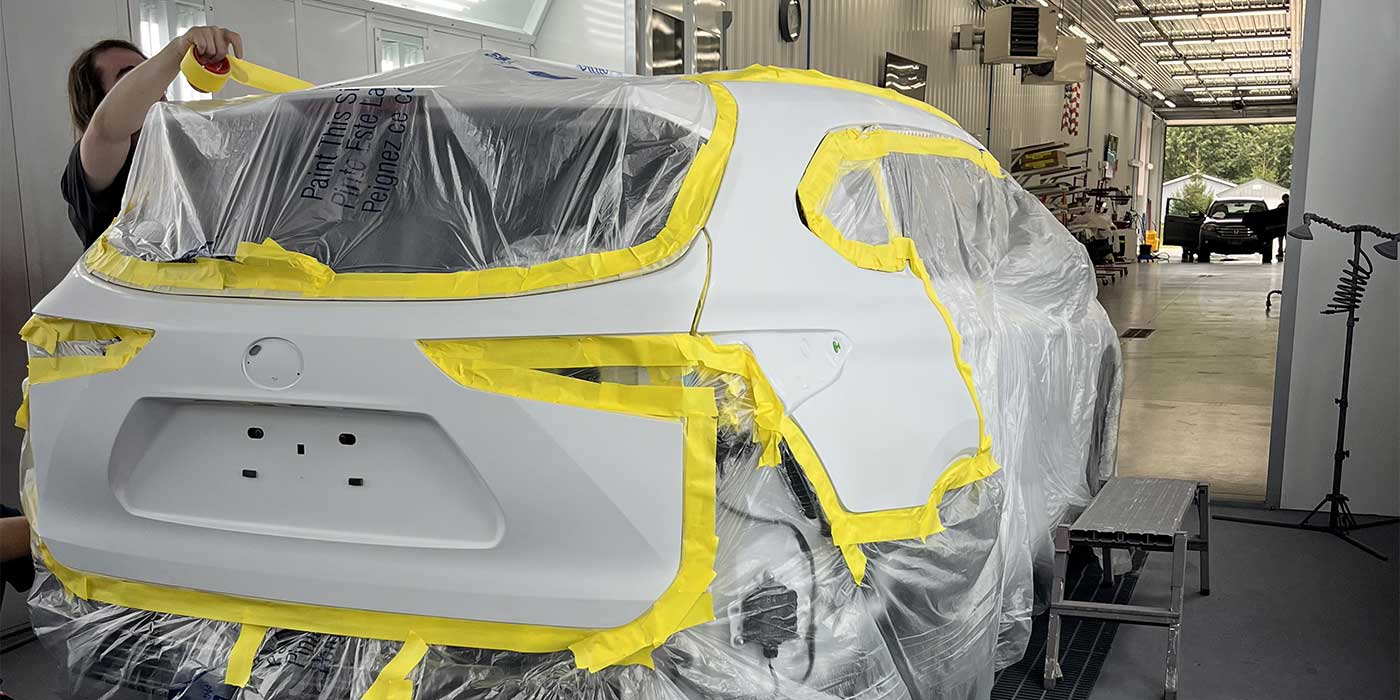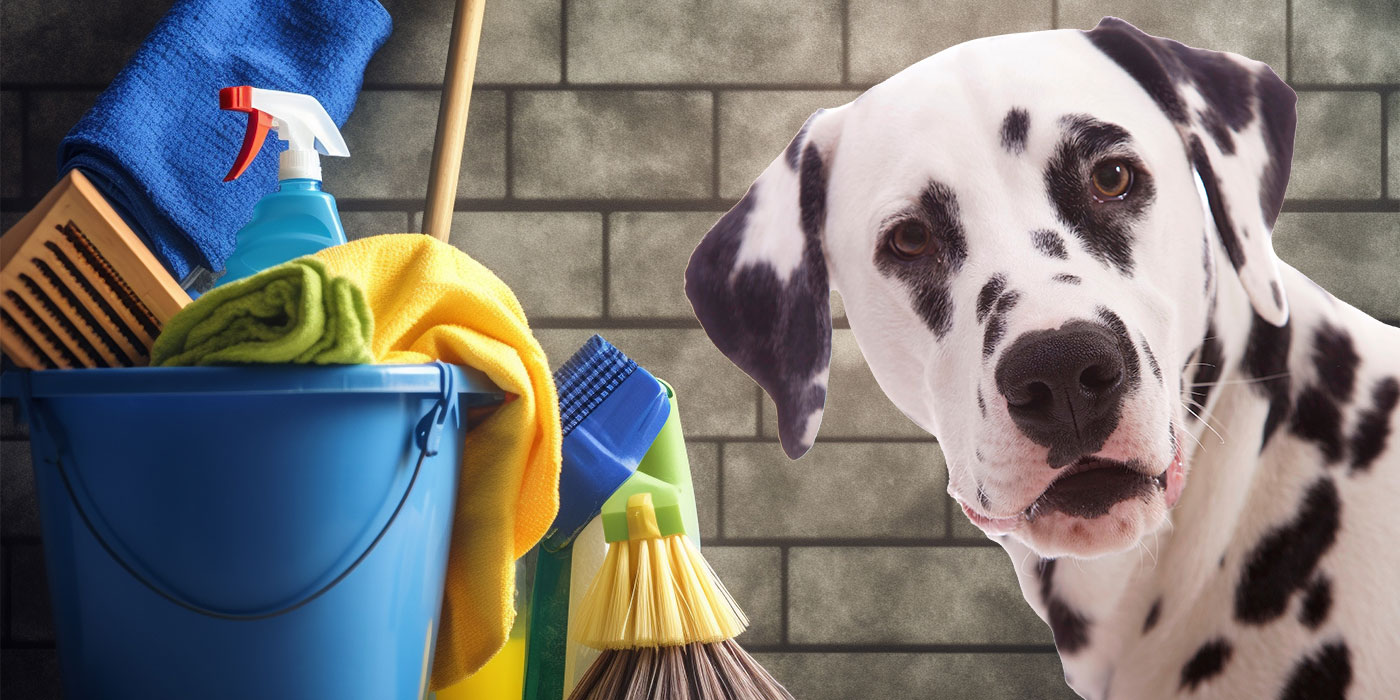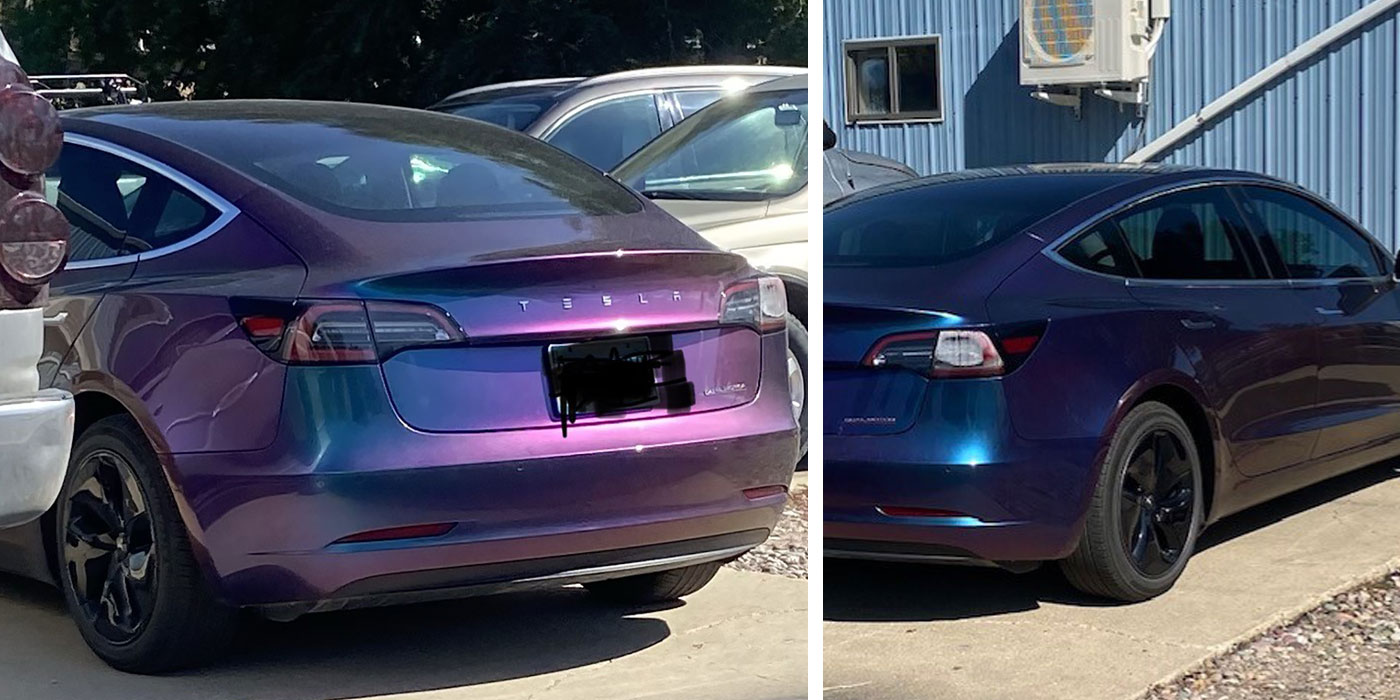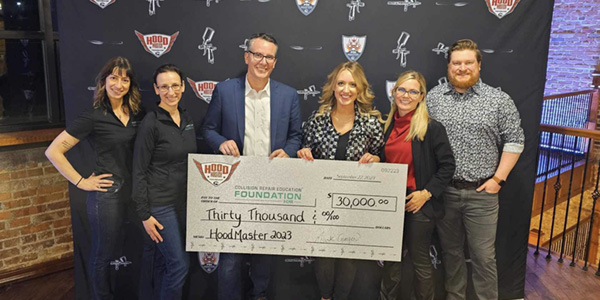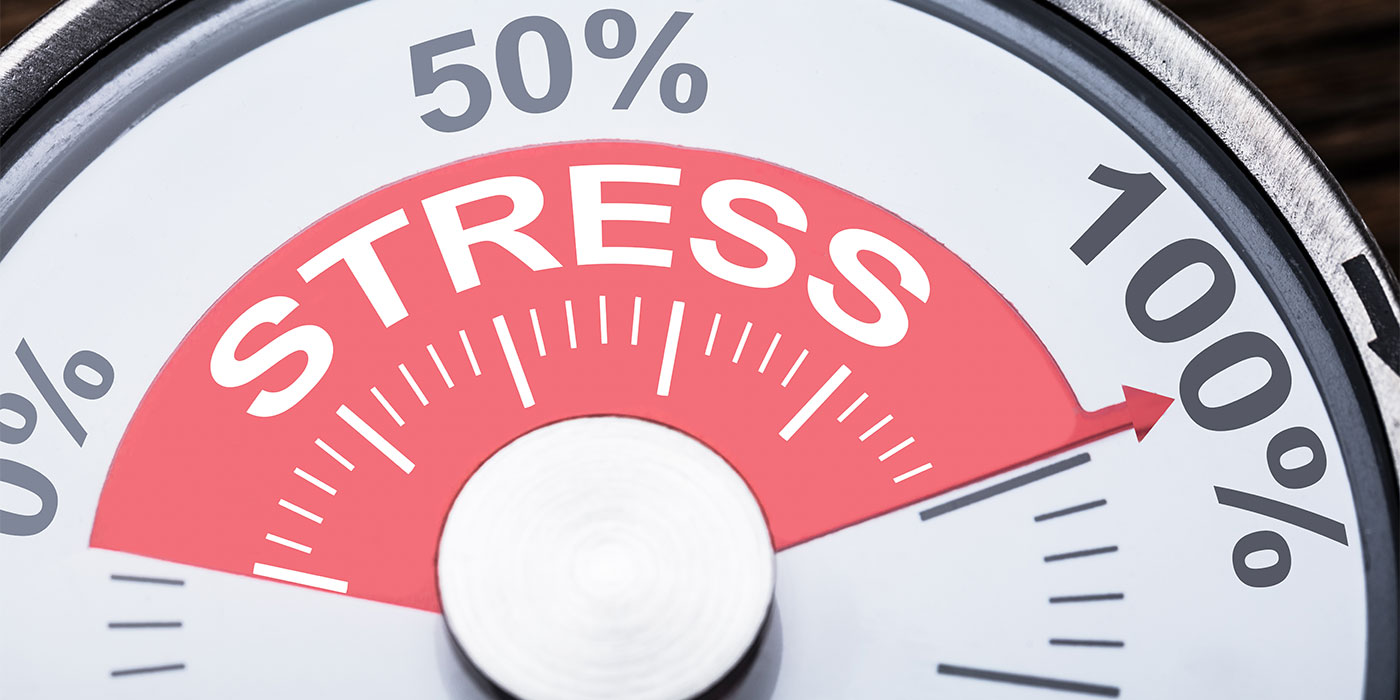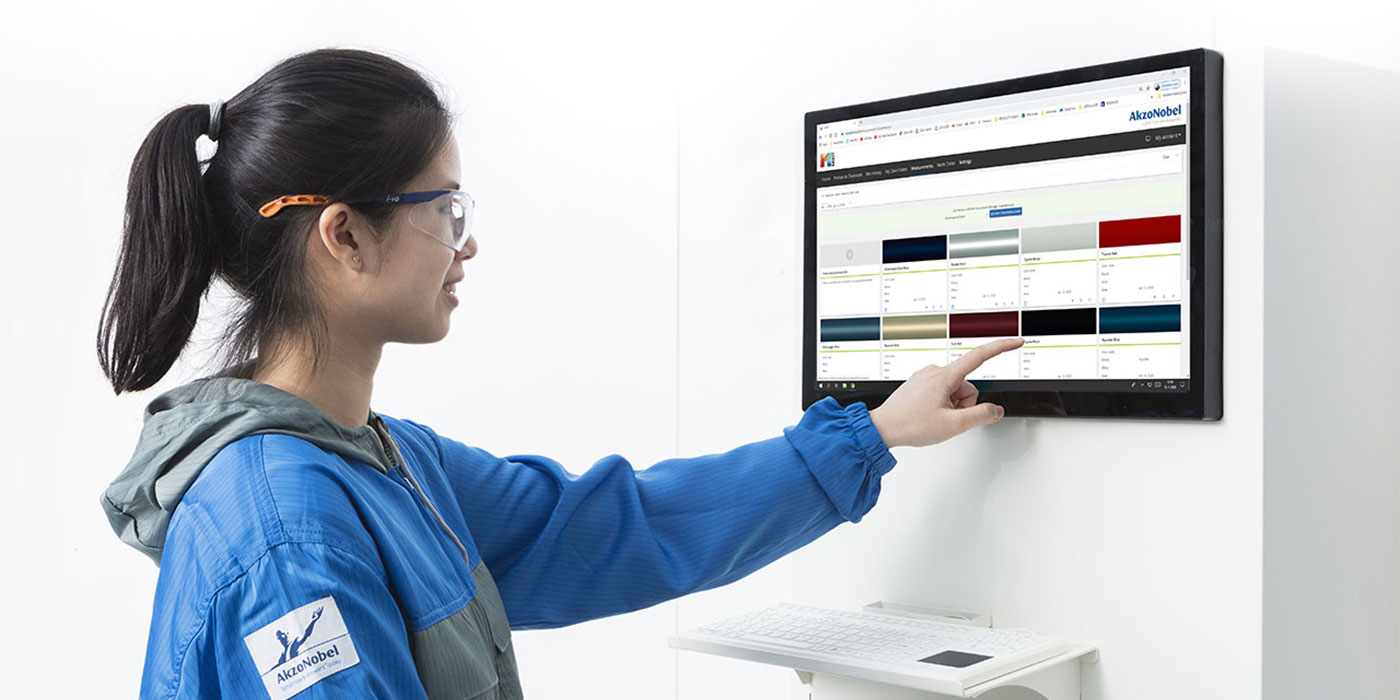As most people involved in the collision repair industry are aware, the National Emission Standard for Hazardous Air Pollutants (NESHAP)1, or 6H as it’s known to repairers, required all body shops to file an original notification with the EPA by Jan. 11, 2010, be in compliance by Jan. 10, 2011, and file a final notification of compliance by March 11, 2011.2 However, what most people don’t realize is that the new 6H Rule has settled one of the many longstanding disputes between repairers and insurers: whether Featheredge, Prime and Block (FPB) is a paint procedure or a body procedure.
The Great Debate
Most insurance companies claim that FPB is a function of body labor and should be paid as a body procedure, or is already “included” in the repair time, thereby not requiring payment for paint materials. But most shops claim that FPB is a function of the paint department because it requires the use of a surface coating, namely primer, and the use of a High Volume Low Pressure (HVLP) spray gun. Therefore, they believe it should be billed as a paint procedure, which would include payment for paint materials.
While 6H doesn’t address how much time FPB requires or whether it should even be paid at all, it does say that if FPB is going to be performed, it must be performed under the guidelines of the 6H Rule, regardless of whether the repairer charges for it. This means that any application of a primer that’s sprayed through an HVLP spray gun or its equivalent with the capacity of greater than 3 ounces must be performed in either a spraybooth or an approved prep area by a certified painter.3
Further, if the shop charges for FPB, it must be charged as a paint procedure and not as a body procedure. This is because any final bill showing that FPB was charged as a body procedure or “included” in the body procedure may be used as evidence against the repairer by the government that it violated the 6H Rule. If a shop owner, manager, painter or body technician violates this rule, it will leave him or her open to civil liability, criminal liability or even jail time.
The 6H Rule
The 6H rule applies to all opera- tions that perform paint stripping using methylene chloride (MeCl), surface coating of miscellaneous metal or plastic parts, and surface coating of motor vehicles and mobile equipment4 – in short, body shops. Further, 6H defines coatings as “a material spray-applied to a substrate for decorative, protective or functional purposes.”5
A spray-applied primer would constitute either a protective or functional coating applied to the substrate (repaired part) because it’s designed to protect the underlying repaired panel or promote adhesion with overlying basecoats or both. 6H defines spray-applied as “coatings that are applied using a hand-held device that creates an atomized mist of coating and deposits the coating on a substrate.”6 This is achieved by using any spray gun that’s capable of holding more than 3 ounces of primer, not just an HVLP spray gun or its equivalent. Therefore, any spray-applied primer coating that’s applied to any part on a vehicle is included in the regulatory scheme of 6H and is subject to the rule.
6H also requires that “[a]ll spray-applied coatings must be applied in a spraybooth, preparation station or mobile enclosure that meets the requirements of [the rule].”7 For years, spraybooths, prep stations and mobile enclosures have been the domain of the paint department in most shops, and most shops have already invested thousands of dollars in this type of specialized equipment to achieve a maximum quality refinish product.
Further, these types of equipment are highly specialized and are generally not suitable for uses other than the application of paint coatings and primers.
Most shops are already complying with this part of the rule during the repair process – not because some rule requires it but because it makes sense in the repair process to have the priming of parts performed in the paint department by the technician who’s ultimately responsible for a quality refinished product.
6H also states that “[a]ll painters must be certified that they have completed training in the proper spray-application of surface coatings and the proper setup and maintenance of spray equipment…The spray-application of surface coatings is prohibited by persons who are not certified as having completed the training described in [this rule].”8 A painter is defined as “any person who spray-applies coating [sic].”9 According to 6H, a painter must be certified in, among other things, the proper spray gun selection, fluid tip or nozzle selection, different types of coatings, and the proper booth filter maintenance and filter selection.10
6H also says that any “[e]mployees who transfer within a company to a position as a painter are subject to the same requirements as a new hire.”11
Most quality body shops have already required their painters to take classes and be certified in order to achieve high-quality refinish products. All 6H states is that if an employee picks up a spray gun and does anything with it other than hold it, he or she is considered a painter and must be certified as such. Therefore, the spray-application of a primer to a part for the purposes of FPB must be performed by a properly trained and certified painter – not a body technician.
Busted by the Bill
So what does all this mean for FPB? 6H makes it clear that the application of primer in the FPB procedure must be performed in either a spraybooth, prep station or mobile enclosure by a trained and certified painter. In short, FPB is an operation of the paint department and not the body, frame, or mechanical departments in a shop.
How would a government agency know if FPB was being performed in the paint department by a certified painter? Well, short of walking in the front door and observing a non-certified person applying primer outside of the paint department, a regulator could simply look at the final bill indicating that FPB was charged as a body procedure – due to the fact that, under the Federal Rules of Evidence, all relevant evidence is admissible evidence.12
While a final bill indicating that FPB was billed as a body procedure wouldn’t necessarily be an admission of violating the 6H Rule, it would be strong evidence against a shop that the procedure wasn’t performed in the paint department by a certified painter. It would most likely create a rebuttable presumption in a civil action that the shop violated the 6H Rule, and the burden would then shift to the shop to prove that it had in fact complied with the 6H Rule.
In a criminal matter, the final bill would raise strong questions by the trier-of-fact that the shop indeed violated the 6H Rule. Therefore, if a shop lists the FPB procedure on a final bill, even if it wasn’t charged for or the shop didn’t charge for materials, it would have been a good idea to list it as a paint procedure. Further, listing FPB as a paint procedure would also help prove that a shop was complying with the 6H Rule if an investigation were to take place.
Steep Fines
There can be stiff penalties for failing to comply with 6H. 6H is incorporated13 into The Clean Air Act of 1990,14 which carries a lengthy penalty section.15 These penalties range from a civil penalty of up to $25,000 per day16, criminal fines of up to $1 million17 or even prison time of up to five years18 for companies and individuals who knowingly violate any portion of the rule.
Neither a good faith effort to comply with the 6H Rule nor lacking actual knowledge of its requirements19 will shield an owner or operator from these penalties.20 Further, the U.S. Eleventh Circuit Court of Appeals held that a willful violation is not an essential element of the crime.21 This means that an owner or employee doesn’t need to know that he or she is violating the 6H Rule in order for the civil and criminal sanctions to be imposed.
Unfortunately, it would be the shop owner or employee who would be subject to these penalties – not the insurance company that insisted FPB was a body procedure.
Andrew J. Rodenhouse received his J.D. from Thomas M. Cooley Law School and is licensed to practice law in Michigan. He also has a Masters of Management Degree from Aquinas College and a bachelor’s degree from Hope College. Previously, he was the executive vice president of Rodenhouse Body Shop and owner of J&K Towing. 